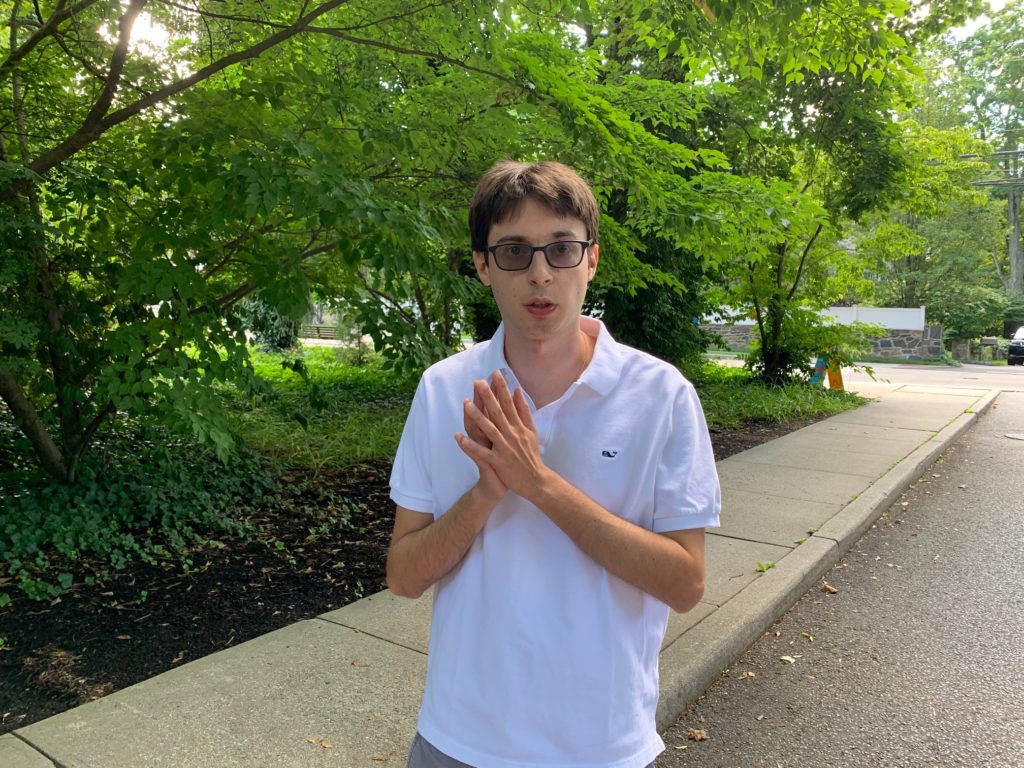
I’m too skeptical or lacking in faith to believe God intercedes when we invoke him in prayer. I mean, if I were to ask God, “Please, God, don’t let my son be one of the unnamed casualties from this shooting,” or, “Please, God, let my sister be one of the survivors in the tornado,” he wouldn’t go in and change the outcome, now would he?
Plus, I’d be praying to a pretty macabre God who’d be letting someone else die and their loved ones suffer just so he could answer my prayer. For all I know, the other people involved might be more saintly than me and be praying more fervently.
In fact, I don’t even know if I believe in God. Some days I do and feel there surely is something after all this we call life. Some days I don’t and view all religions as made-up stories we humans have come up with to ease our existential dread.
And yet, I do believe in the power of prayer for the three reasons that follow.
1. Prayer Builds Community
Fabiola, a magnificent woman I get to call my friend, came down with cancer a couple of years ago. A few months after her diagnosis, someone came up with the idea of creating a prayer group for her. Almost every week since then, we’ve all gotten together to chat and pray, not only for Fabi, but for situations others in the group bring up.
Even through COVID — especially through COVID — we kept it up. The group includes thirty women, and it has been a source of community. It’s where we tell one another our big sorrows and concerns. It’s where we find solidarity.
Some in the group are devout Catholics like my mother; some are just culturally Catholic like me. Some are convinced God heard our prayers and made their relatives’ COVID mild, while others are certain God intervened in mysterious ways that will remain unknowable to us. A few probably think something entirely different.
It really doesn’t matter what each of us believes. What matters is the community we’ve built. What matters is the soothing effect produced by the rhythmic recitation of the prayers and litanies. What matters is that those who need support have felt supported.
And if God directly intervenes in mysterious ways, well then prayer will help with that too.
2. Prayer Is Grounding
I have the best mother in the world. No, really. I’m not just saying it because she’s my mom. She just is. My mother’s generous, loving, fun, and energetic. She never gets bored and she’s the best company. Everyone loves to be around her.
I believe her prayer habit has a lot to do with it. My mom prays a lot and attends mass several times a week. Being of the Roman Catholic faith, her routine revolves around the rosary.
She prays while holding her rosary beads, eyes closed, thumb and index finger gently pinching the bridge of her nose. The moment she picks up her rosary, her face adopts the same expression of complete concentration, rapture, and surrender.
Wise lady that she is, my mom’s not one to indoctrinate. She did raise her children Catholic. We all went to Catholic school, to church on Sundays, and received all the sacraments. But so did everyone else I knew back in Caracas, Venezuela, where we’re from. And she hardly bugged me when I stopped attending mass.
I’m convinced one of the main reasons my mom, at 80, is so psychologically strong, is her daily prayer practice. I imagine it does the same for her as what meditation practice does for solid meditators. It grounds her and helps her live in the moment.
The focus of my mom’s prayers ranges from specific individuals to the whole of humankind. She doesn’t ask God for particular outcomes. To her, divine intervention takes the form of God granting people gifts like strength, compassion, equanimity, clarity, courage, acceptance, and changes of heart.
3. Prayer Is Calming and Reassuring
Unlike my mother, my son, Diego (who’s 27 and autistic), prays for very specific things. His asks include outcomes he wants for himself as well as for people he cares about.
When he prays, he brings his hands together just under his chin, recites the Lord’s Prayer (the only one he knows), and asks God for things like helping him find a girlfriend, making our friend Fabiola better, and helping the victims of the latest natural disaster.
More often, though, Diego prays to ease his anxiety.
Uncertainty, in particular, makes him anxious. And so, after saying his “Our Father Who Art in Heaven”, he’ll simply tell God, as if he were sitting right in front of him, all the stuff he hopes for:
“God, I will go visit my friend Owen. And God, my mom won’t get angry with me ever again. And God, we’ll go out for ice cream, and I’ll call Tia Lole only once from now on. And God….” He’ll go on and on. And then he’ll move on — for a while.
Final Thoughts
The way I see it, the power of prayer is largely unrelated to being religious or practicing a specific faith.
I’d say it’s a great tool that helps fulfill human needs. I, for one, pray mainly to build community and to calm myself. I’m seriously afraid of flying and praying always helps me relax and pass the time. It has an involuntary, almost calming, effect on my brain, which, by the way, also helps me fall asleep.
I used to feel conflicted about praying because, as I wrote above, I’m not even sure I believe in God. I now pray when I feel the need with no reservations whatsoever. The human experience is contradictory and messy, and we best avail ourselves with whatever psychological and spiritual tools will help us navigate it.

